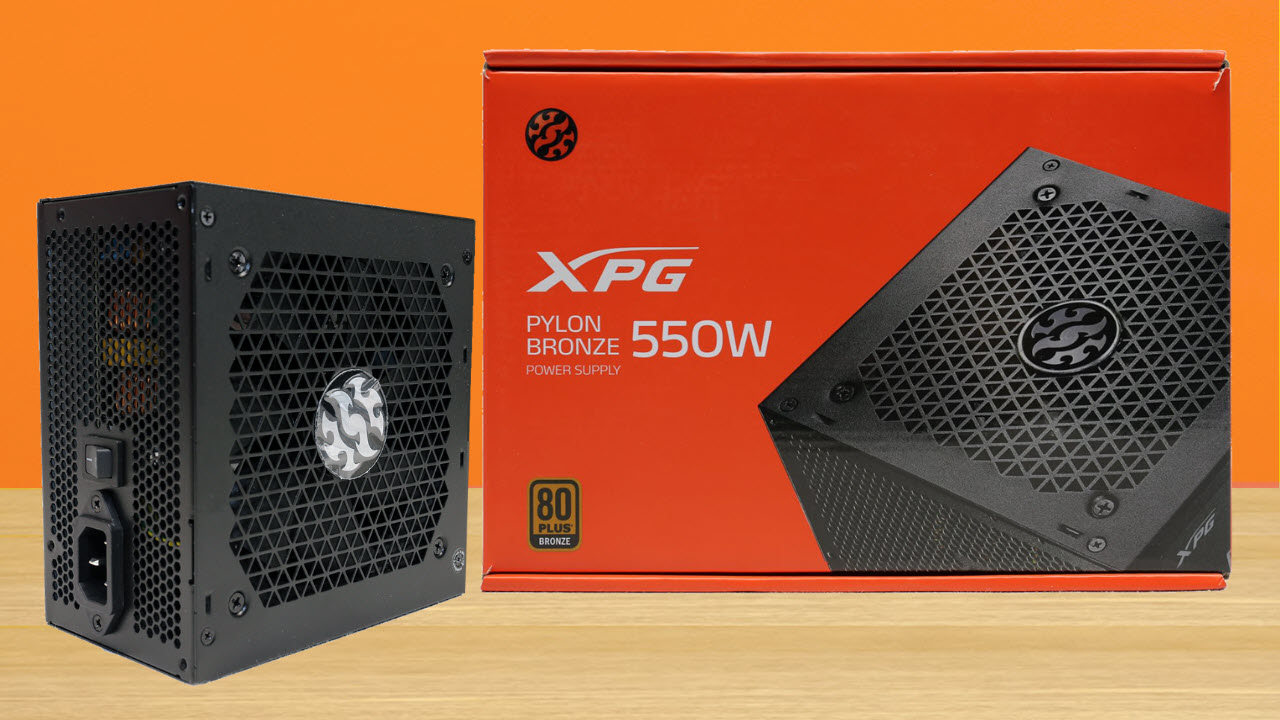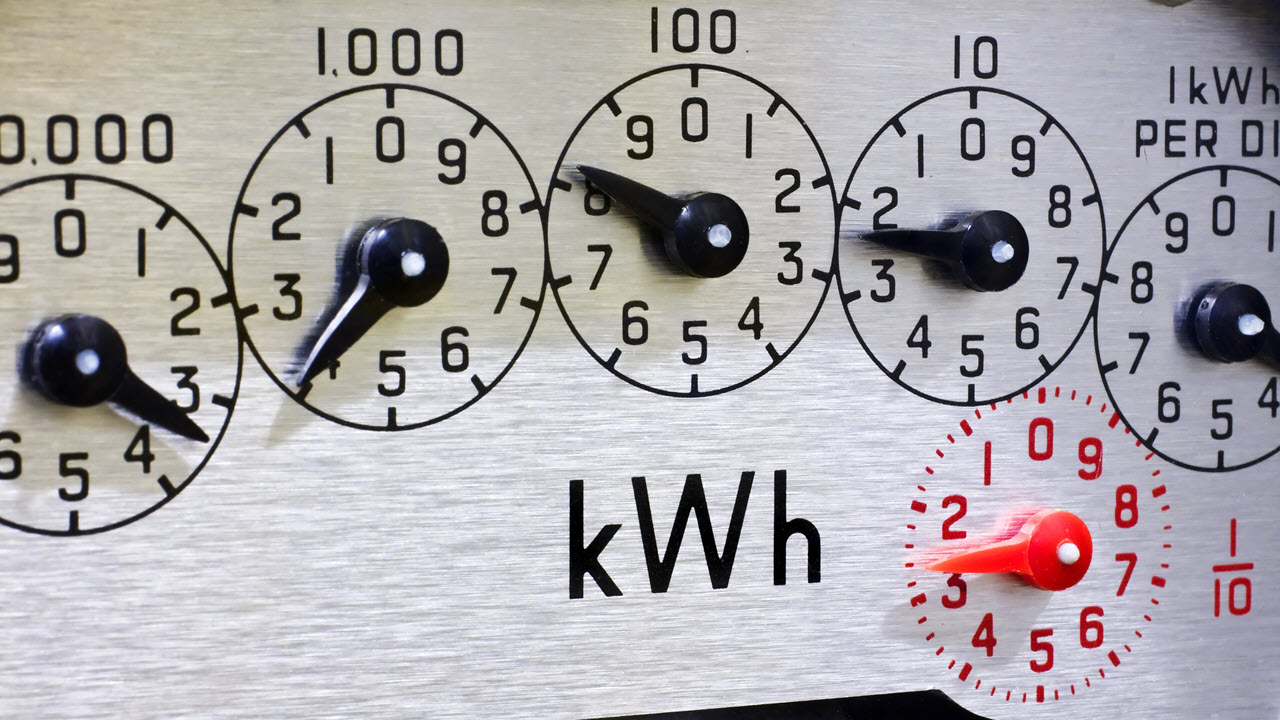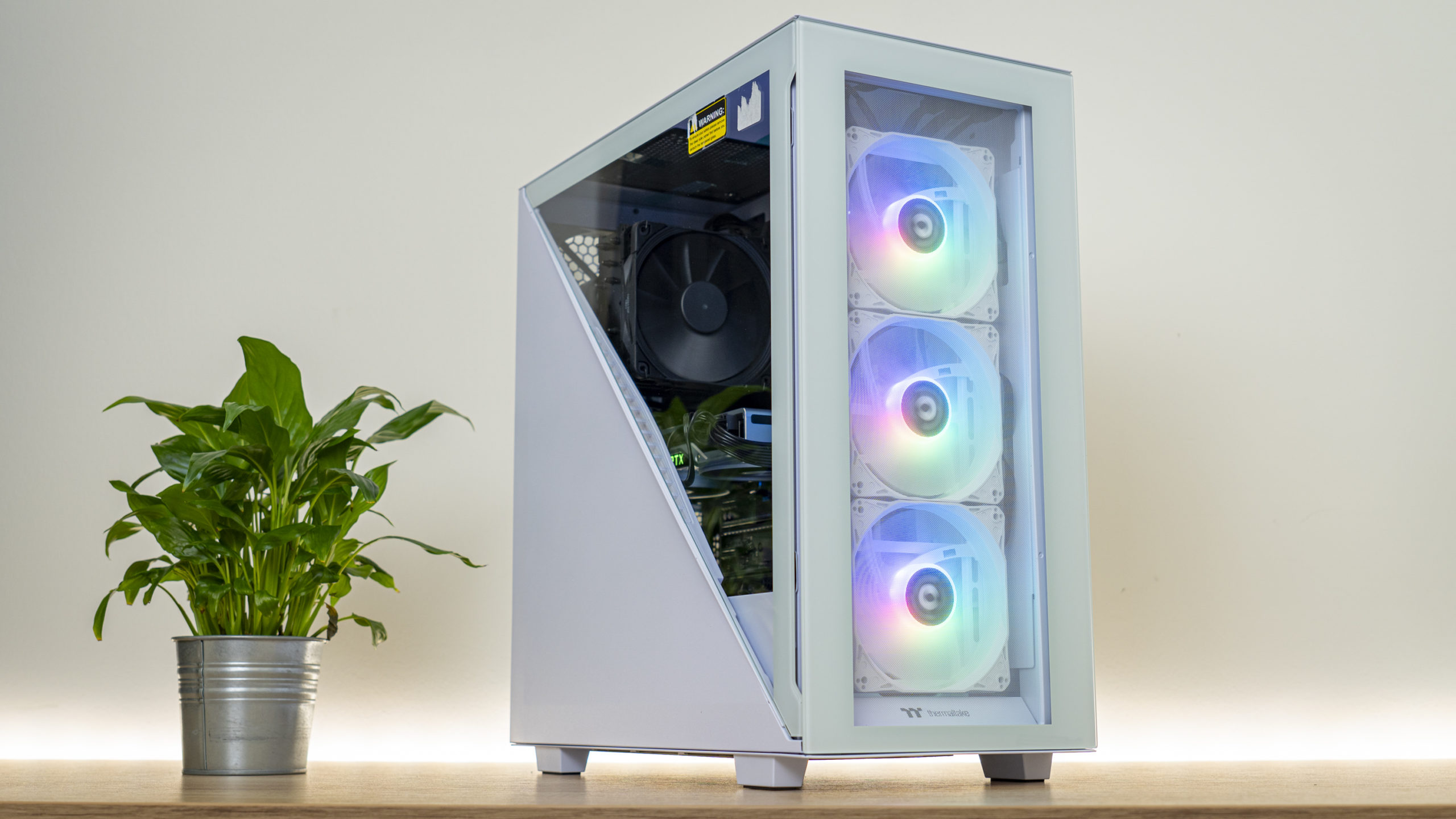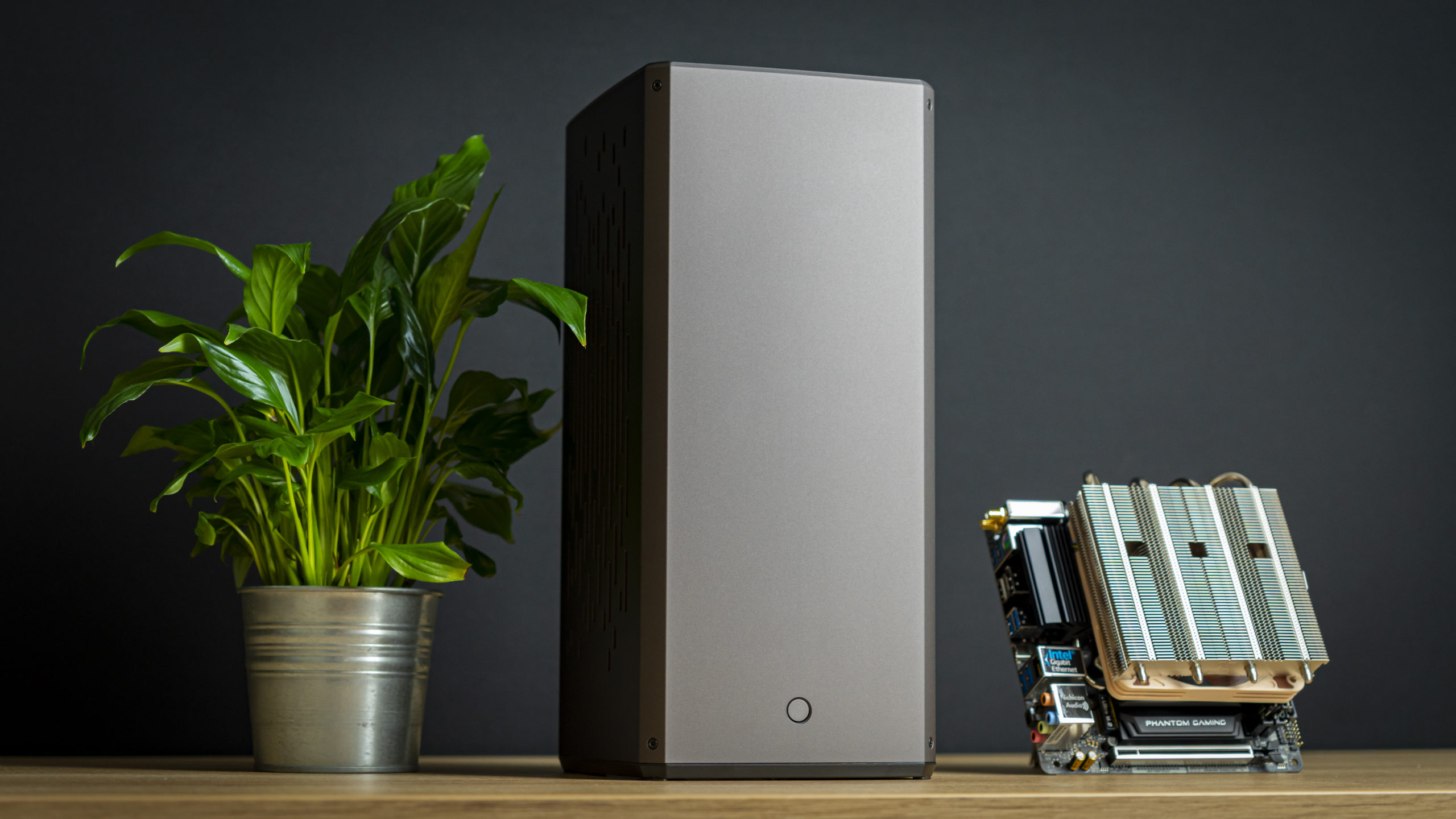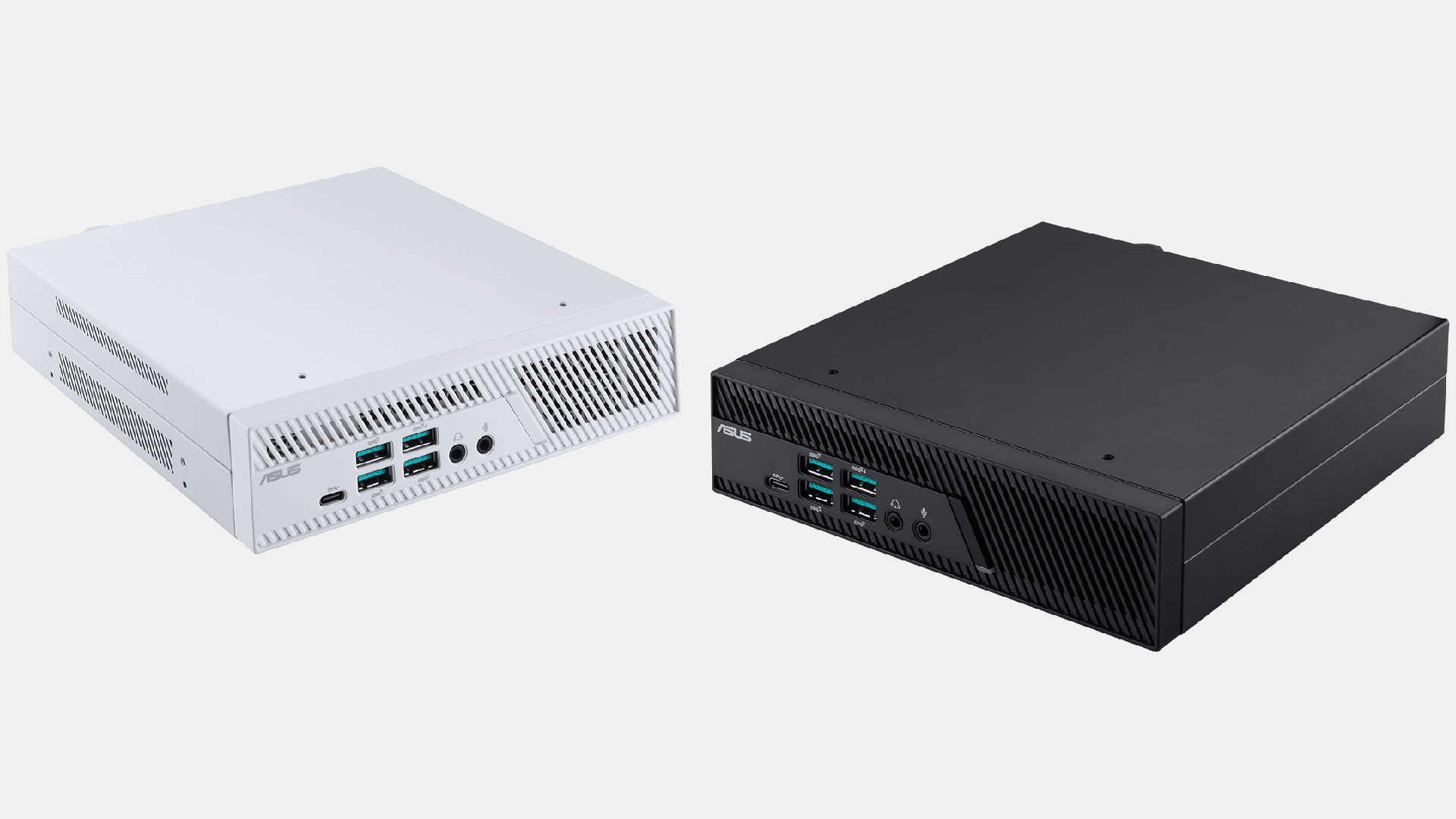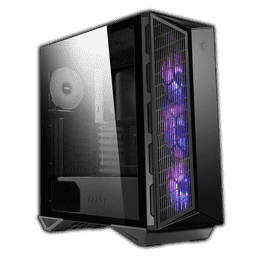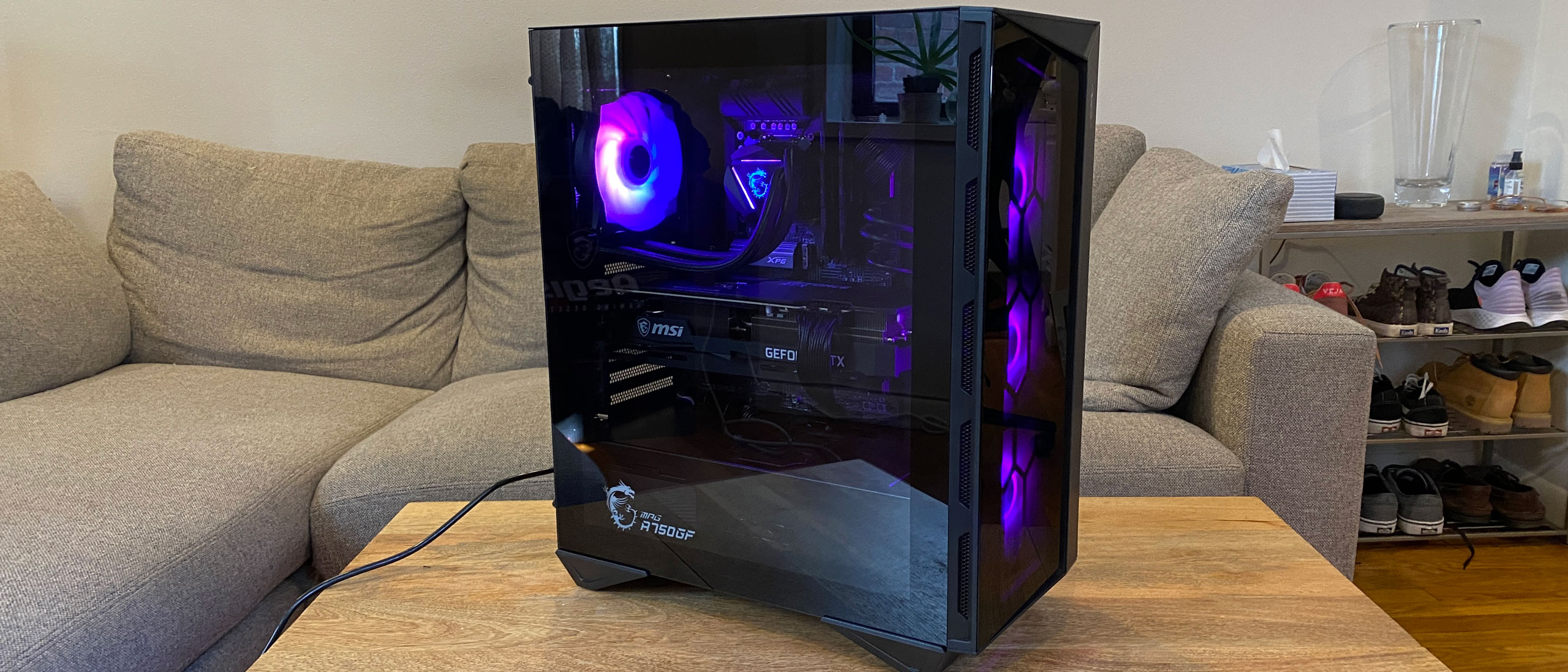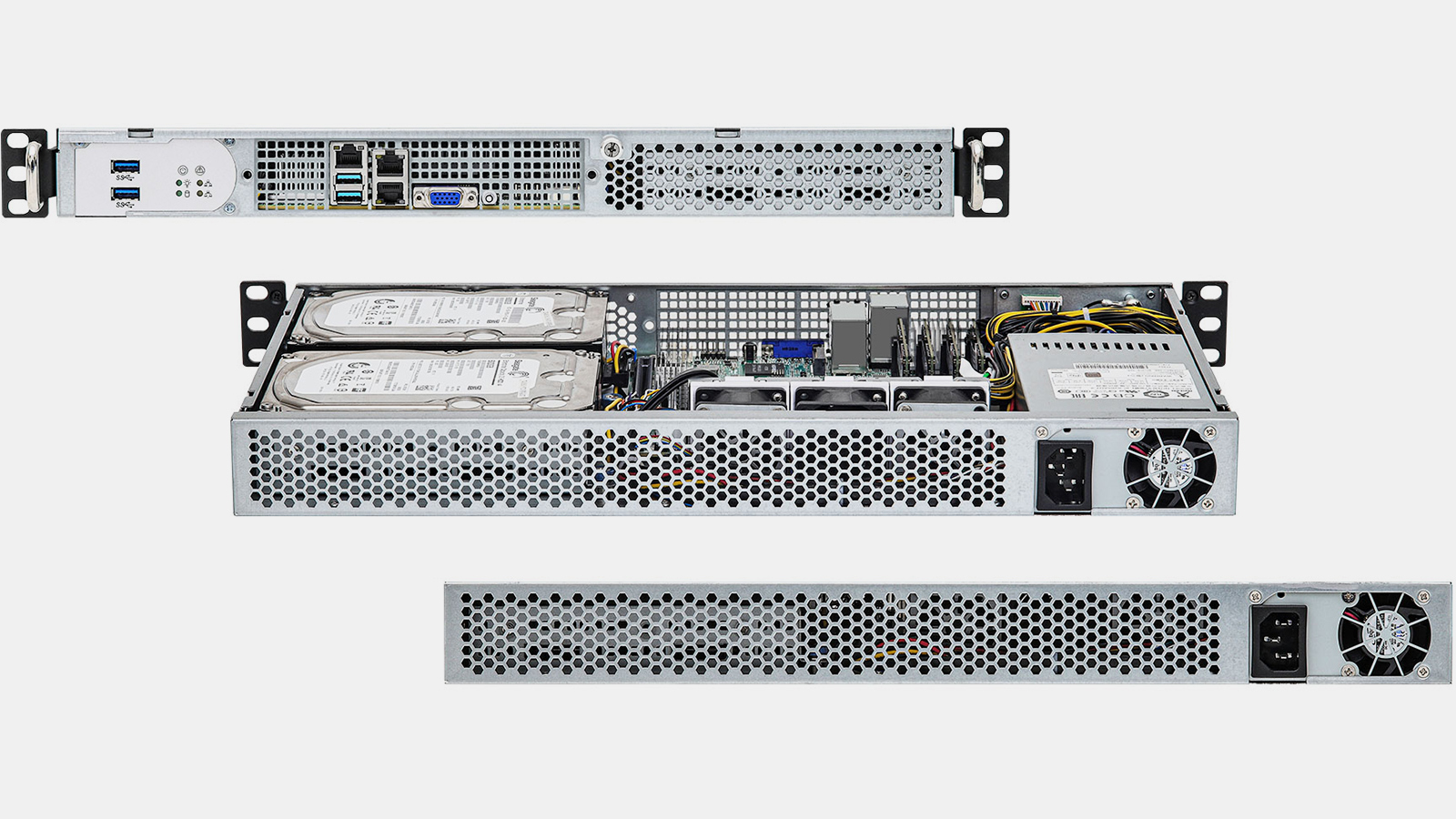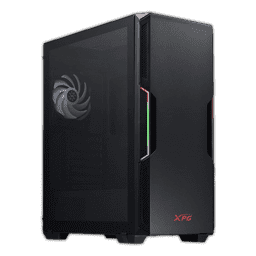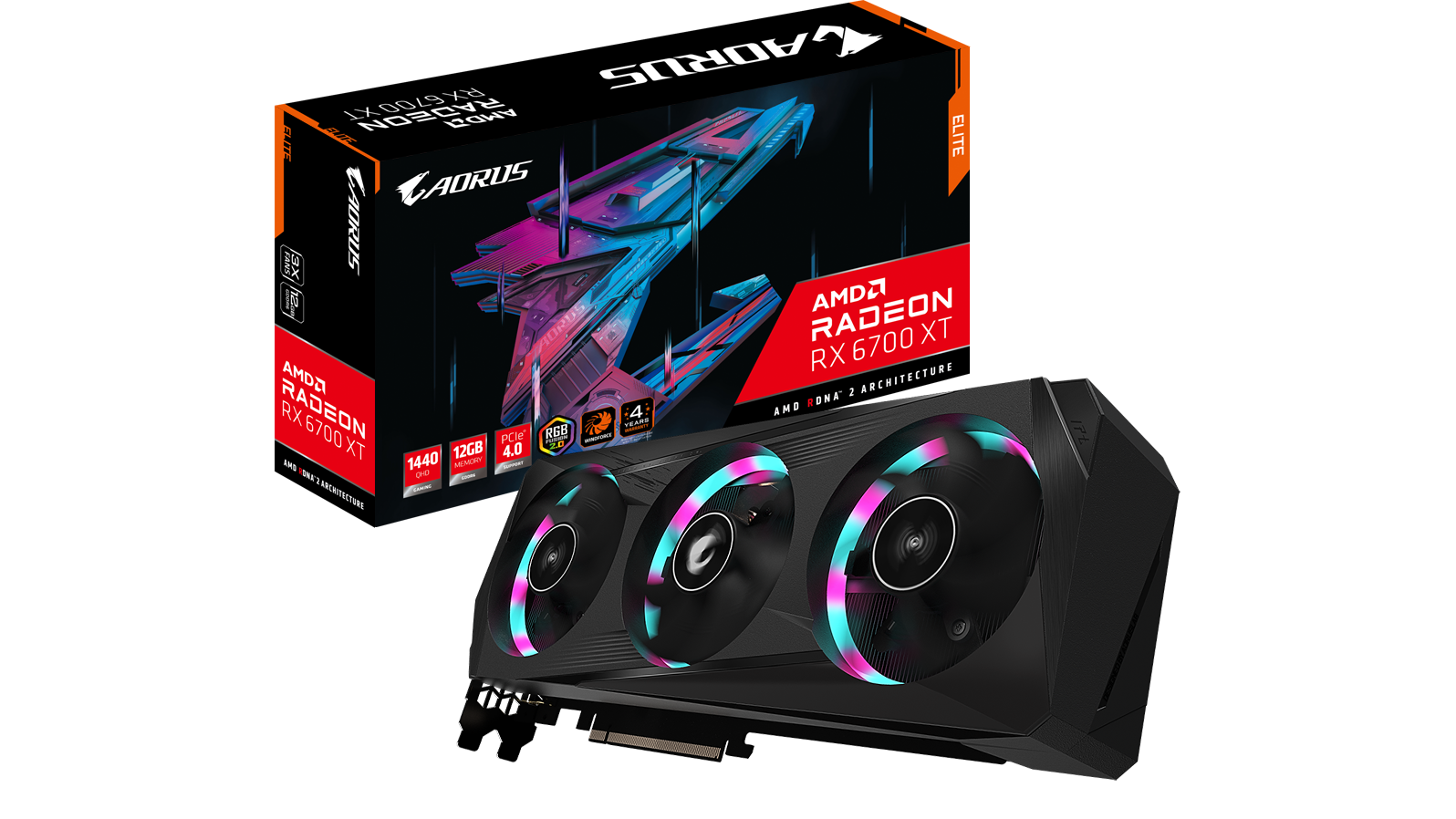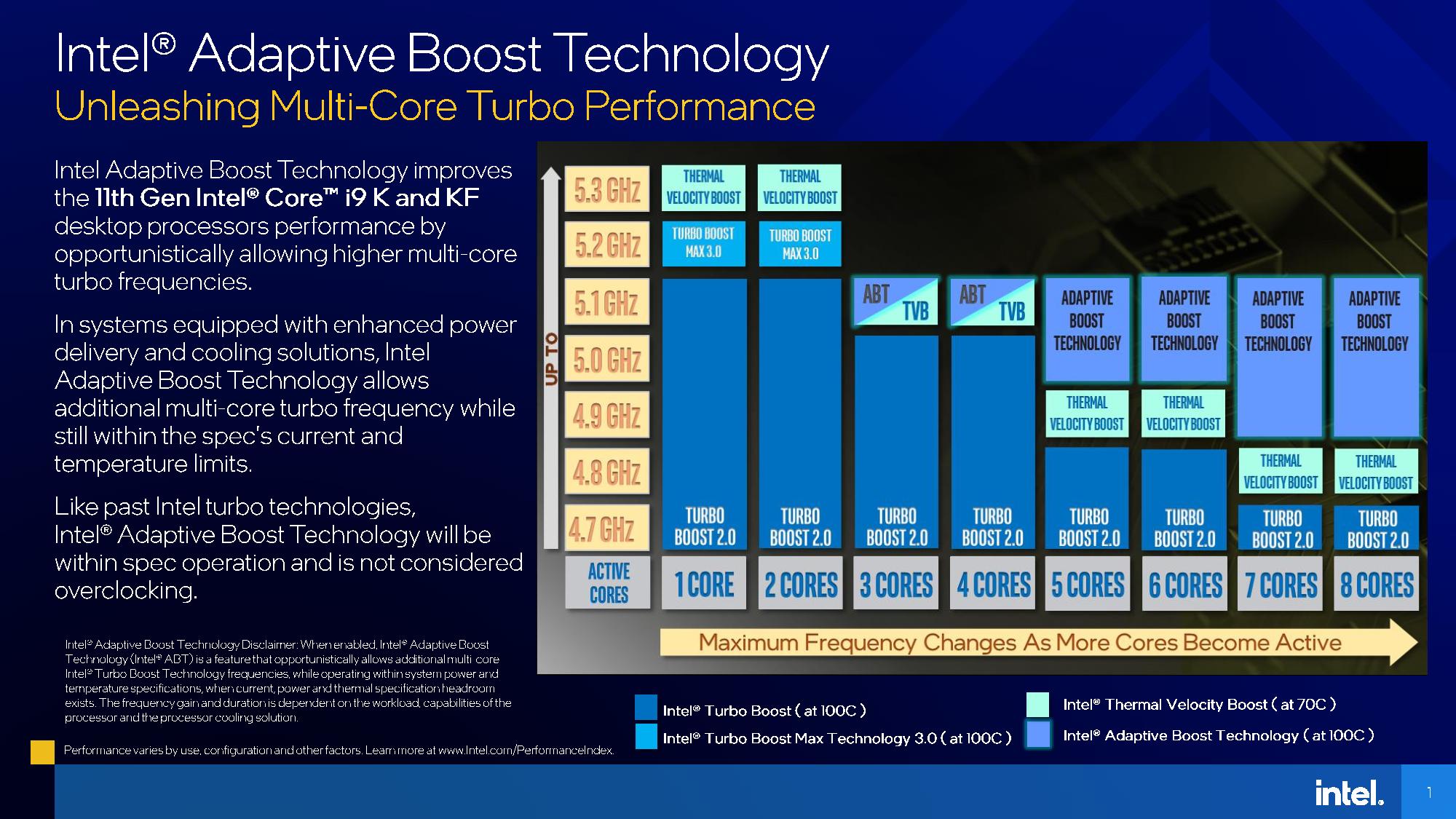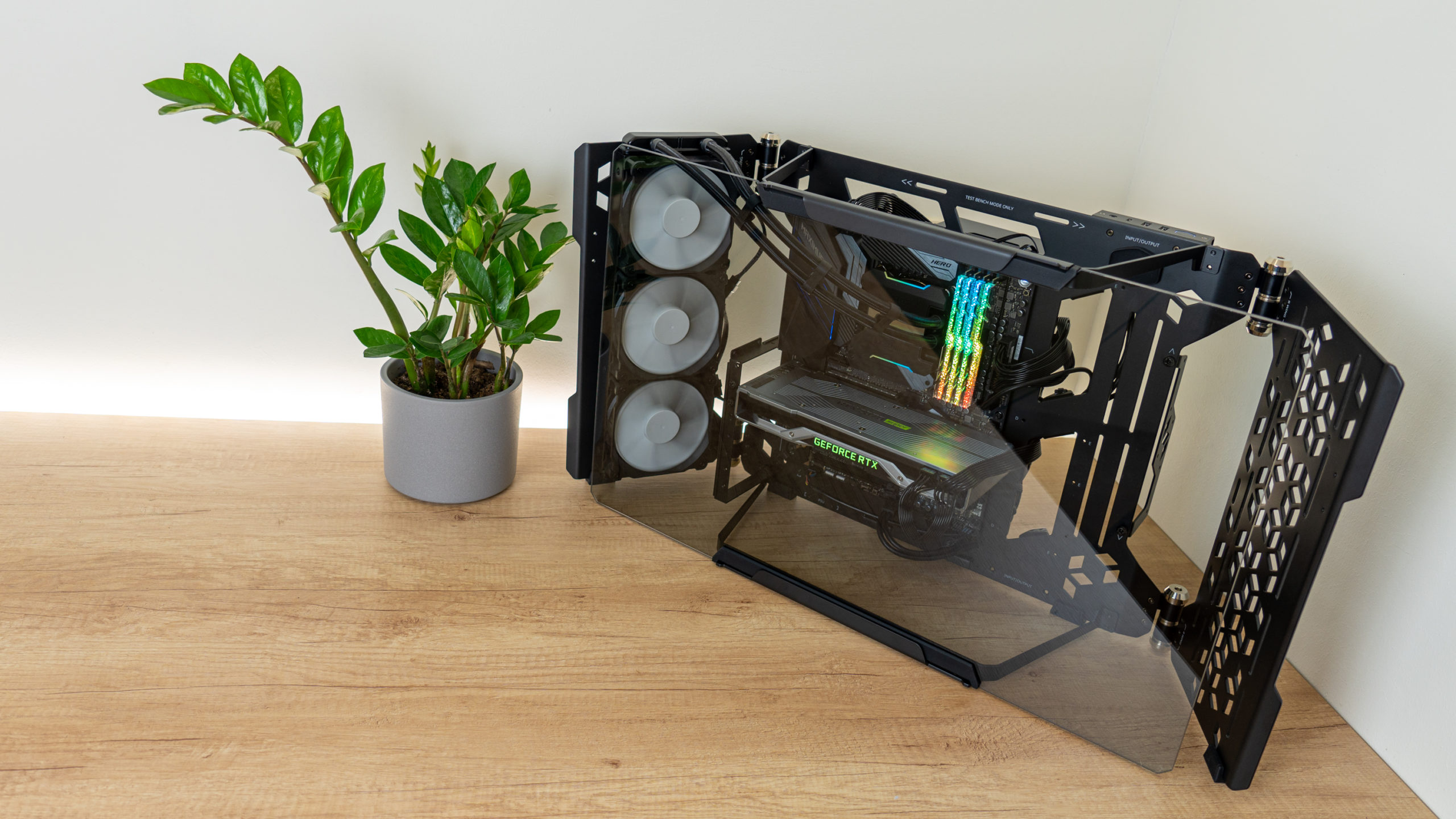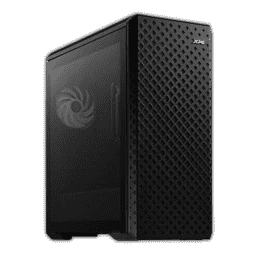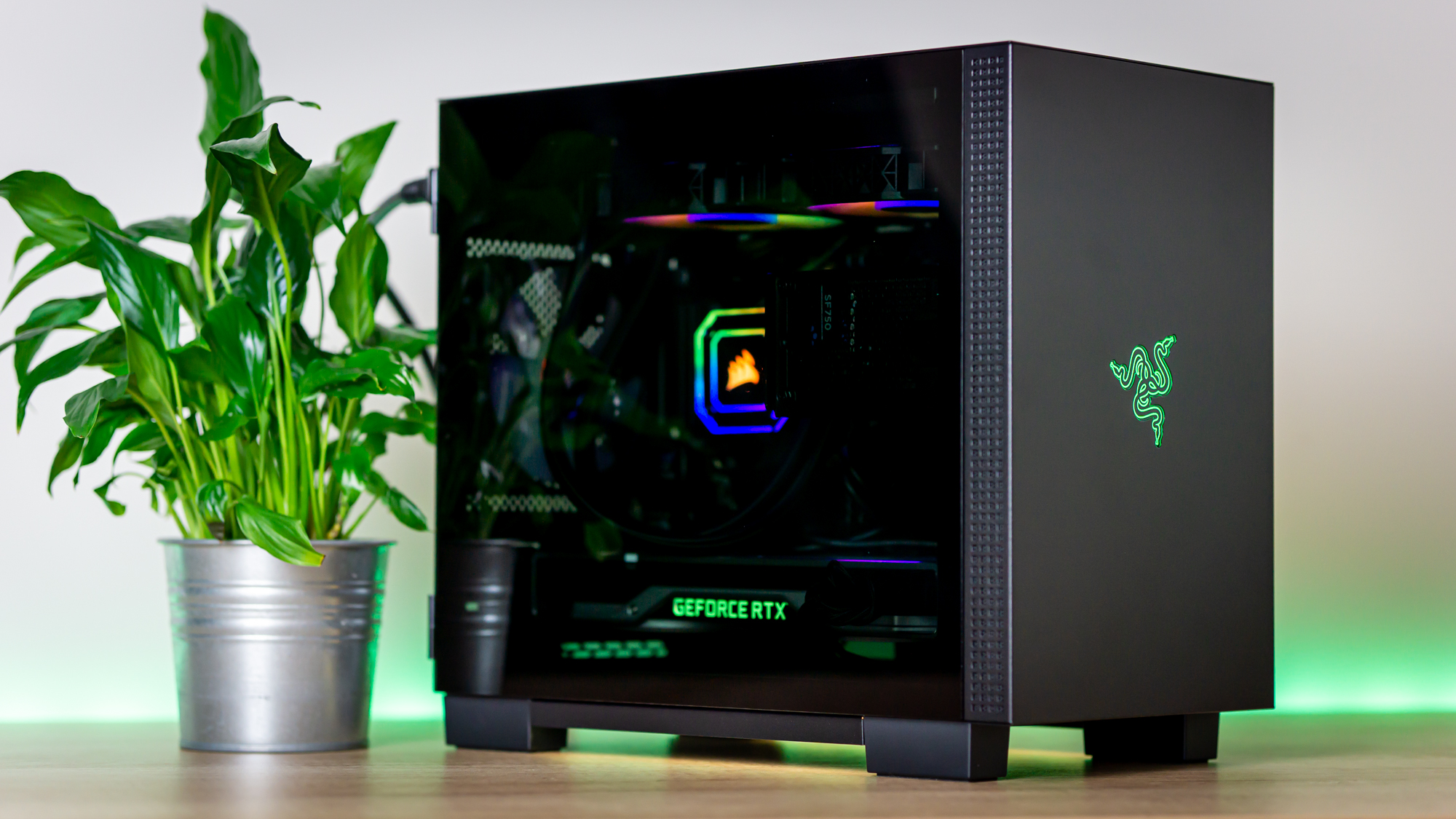Our Verdict
The Pylon 550W by XPG achieves high overall performance, and is equipped with a quality fan that’s uncommon in this price range.
For
- + Full power at 40 degrees Celsius
- + High overall performance
- + FDB fan
- + Build quality is high enough
- + Low inrush current with 115V
- + Highly efficient 5VSB rail
- + Long cables and two PCIe connectors
- + Compact dimensions
- + Low EMI emissions
- + Compatible with the Alternative Sleep Mode
Against
- – Not modular
- – Lower than 17ms hold-up time
- – Transient response is not so good
- – Gets noisy at higher loads (>425W)
Specifications and Part Analysis
The XPG Pylon 550W achieves respectable performance for the standards of the category, despite having a fan speed profile that’s not aggressive. That said, its average noise output could be quieter with some changes in the design. For the internals, XPG used quality parts for increased reliability along with an FDB fan, which is usually hard to find in this price range. Designed to compete with the Best PSUs for those on a budget, the XPG Pylon 550W is in the same market segment as the Cooler Master MWE Bronze 550 and the Corsair CX550F RGB.
We’ve already reviewed the similar, higher wattage XPG Pylon 650W, which performed quite well in our tests. This review will take a detailed look at the lower capacity Pylon model with 550W max power. All Pylon units have 80 PLUS Bronze and Cybenetics Silver efficiency ratings and use a platform offered by Channel Well Technology (CWT). There are no modular cables in an effort to keep the production cost low.
Image 1 of 13
Product Photos
Image 2 of 13
Image 3 of 13
Image 4 of 13
Image 5 of 13
Image 6 of 13
Image 7 of 13
Image 8 of 13
Image 9 of 13
Image 10 of 13
Image 11 of 13
Image 12 of 13
Image 13 of 13
The Pylon 550 has compact dimensions, with only 140mm depth. In a unique but appreciated twist, XPG chose to equip it with a fluid dynamic bearing from Hong Hua, which is rare for this price category. FDB fans offer high reliability and have low output noise, but they are more expensive than rifle and sleeve bearing fans, so most brands avoid them in their lower-end lines.
But with this better-than-usual fan and its reliable CWT platform, XPG’s confidently offering a 3 year warranty. Thermaltake offers five-years in its Smart BM2 line, which uses the same CWT platform but doesn’t have the part upgrades of the Pylon 550.
Image 1 of 5
Product Photos
Image 2 of 5
Image 3 of 5
Image 4 of 5
Image 5 of 5
General Specifications of XPG Pylon 550W
|
Manufacturer (OEM) |
CWT |
|
Max. DC Output |
550W |
|
Efficiency |
80 PLUS Bronze, Cybenetics Bronze (82-85%) |
|
Noise |
Cybenetics Standard++ (30-35 dB[A]) |
|
Modular |
✗ |
|
Intel C6/C7 Power State Support |
✓ |
|
Operating Temperature (Continuous Full Load) |
0 – 40°C |
|
Over Voltage Protection |
✓ |
|
Under Voltage Protection |
✓ |
|
Over Power Protection |
✓ |
|
Over Current (+12V) Protection |
✓ |
|
Over Temperature Protection |
✓ |
|
Short Circuit Protection |
✓ |
|
Surge Protection |
✓ |
|
Inrush Current Protection |
✓ |
|
Fan Failure Protection |
✗ |
|
No Load Operation |
✓ |
|
Cooling |
120mm Fluid Dynamic Bearing Fan (HA1225H12F-Z) |
|
Semi-Passive Operation |
✗ |
|
Dimensions (W x H x D) |
150 x 85 x 140mm |
|
Weight |
1.76 kg (3.88 lb) |
|
Form Factor |
ATX12V v2.52, EPS 2.92 |
|
Warranty |
3 Years |
Power Specifications of XPG Pylon 550W
| Rail | 3.3V | 5V | 12V | 5VSB | -12V | |
|---|---|---|---|---|---|---|
| Max. Power | Amps | 20 | 20 | 45.5 | 2.5 | 0.3 |
| Watts | 110 | 546 | 12.5 | 3.6 | ||
| Total Max. Power (W) | 550 | |||||
Cables & Connectors on XPG Pylon 550W
| Native Cables | ||||
| Description | Cable Count | Connector Count (Total) | Gauge | In Cable Caps |
|---|---|---|---|---|
| ATX connector 20+4 pin (660mm) | 1 | 1 | 18-22AWG | No |
| 4+4 pinEPS12V (670mm) | 1 | 1 | 18AWG | No |
| 6+2 pin PCIe (560mm+150mm) | 1 | 2 | 18AWG | No |
| SATA (560mm+150mm+150mm) / 4-pin Molex (+150mm) | 1 | 3 / 1 | 18AWG | No |
| SATA (560mm+150mm) / 4-pin Molex (+150mm) / FDD (+150mm) | 1 | 2 / 1 / 1 | 18-20AWG | No |
| Modular Cables | ||||
| AC Power Cord (1420mm) – C13 coupler | 1 | 1 | 18AWG | – |
The XPG Pylon 550W has one EPS connector and two PCIe connectors, which is more than enough for a 550W Bronze power supply. The two peripheral cables house both SATA and 4-pin Molex connectors, and one of them also has a floppy connector, which could be replaced with a 4-pin Molex.
Image 1 of 6
Cable Photos
Image 2 of 6
Image 3 of 6
Image 4 of 6
Image 5 of 6
Image 6 of 6
Component Analysis of XPG Pylon 550W
| General Data | – |
| Manufacturer (OEM) | CWT |
| PCB Type | Single Sided |
| Primary Side | – |
| Transient Filter | 4x Y caps, 2x X caps, 2x CM chokes, 1x MOV, 1x CAP200DG (Discharge IC) |
| Inrush Protection | NTC Thermistor SCK – 2R58 (2.5 Ohm) |
| Bridge Rectifier(s) |
1x GBU1006 (600V, 10A @ 100°C) |
| APFC MOSFETs |
2x Great Power GP18S50G (500V, 18A, Rds(on): 0.19Ohm) |
| APFC Boost Diode |
1x STMicroelectronics STTH8S06D (600V, 8A) |
| Bulk Cap(s) |
1x Nichicon (400V, 390uF, 2,000h @ 105°C, GG) |
| Main Switchers |
2x Silan Microelectronics SVF20N50F (500V, 12.6A @ 100°C, Rds(on): 0.27Ohm) |
| PFC/PWM Combo Controller | Champion CM6800TX & Champion CM03X |
| Topology |
Primary side: APFC, Double Forward |
| Secondary Side | – |
| +12V | 4x PFC PFR20L60CT SBR (60V, 20A) |
| 5V & 3.3V | 4x Sync Power SPN3006 (30V, 57A @ 100°C, Rds(on): 5.5mOhm) PWM Controller: ANPEC APW7159C |
| Filtering Capacitors |
Electrolytic: 3x Elite (2-5,000h @ 105°C, ED), 5x Elite (2-5,000h @ 105°C, EK), 4x Elite (4-10,000h @ 105°C, EY), 2x Elite (3-6,000h @ 105°C, EV), 1x Elite (3-6,000h @ 105°C, EG), 2x Elite (2,000h @ 105°C, PF) |
| Supervisor IC | IN1S429I – DCG |
| Fan Model | Hong Hua HA1225H12F-Z (120mm, 12V, 0.58A, Fluid Dynamic Bearing Fan) |
| 5VSB Circuit | – |
| Standby PWM Controller | Power Integrations TNY287PG |
Image 1 of 4
Overall Photos
Image 2 of 4
Image 3 of 4
Image 4 of 4
This XPG Pylon 550W uses the new CWT CSB-A platform, which spans from 450 to 750W, although XPG’s aimed to include several modifications on this platform to increase performance and reliability. Besides the PSU’s Elite caps, which are the best alternative to Japanese caps, there is also a quality FDB fan by Hong Hua. That’s a pretty rare find in a Bronze PSU.
All the Pylon 550W’s heatsinks are small, and a pair of DC-DC converters regulate the minor rails. The 12V rail is passively rectified, though, so efficiency does take a hit. On the other hand, ripple is lower because SBRs are not as noisy as FETs.
Image 1 of 7
Transient filter
Image 2 of 7
Image 3 of 7
Image 4 of 7
Image 5 of 7
Image 6 of 7
Image 7 of 7
Besides the required parts, the transient filter also includes a discharge IC to provide a small efficiency boost.
And as you can see in our photos, the single bridge rectifier is bolted onto a dedicated heat sink.
Image 1 of 5
APFC converter
Image 2 of 5
Image 3 of 5
Image 4 of 5
Image 5 of 5
The APFC converter uses two Great Power FETs and an STMicroelectronics boost diode. The bulk cap is by Nichicon.
The combo PFC/PWM controller is the Champion CM6800TX, an IC widely used in power supply several years ago. A CMO3X supports it for reduced vampire power levels.
Image 1 of 2
Main FETs and primary transformer
Image 2 of 2
The primary FETs are two SVF20N50F by Silan Microelectronics, arranged into a double forward topology.
Image 1 of 6
12V FETs and VRMs
Image 2 of 6
Image 3 of 6
Image 4 of 6
Image 5 of 6
Image 6 of 6
For PFC, PFR20L60CT SBRs regulate the 12V rail, while the minor rails handle four Sync Power SPN3006 FETs.
Image 1 of 3
Filtering caps
Image 2 of 3
Image 3 of 3
The filtering caps in our sample are by Elite and have strong specs. We also found two APAQ polymer caps.
Image 1 of 2
5VSB Circuit
Image 2 of 2
The standby PWM controller is a Power Integrations TNY287PG.
The supervisor IC, an IN1S429I – DCG, is installed on the top-side of the PCB.
Image 1 of 2
Soldering quality
Image 2 of 2
Soldering quality is decent, though not exceptional.
Image 1 of 2
Cooling fan
Image 2 of 2
The cooling fan with model number HA1225H12F-Z is provided by Hong Hua and uses a fluid dynamic bearing, so besides a long life, it will also keep noise output low, at low and mid-speeds.
MORE: Best Power Supplies
MORE: How We Test Power Supplies
MORE: All Power Supply Content
